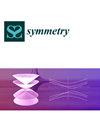多云环境下科学工作流调度:一种多目标最小权优化决策方法
IF 2.2
3区 综合性期刊
Q2 MULTIDISCIPLINARY SCIENCES
引用次数: 0
摘要
在多云环境中,调度虚拟机上的操作最困难的一个方面是确定接近最优的排列。此任务需要将具有竞争目标的各种计算作业分配给一组虚拟机。大量的np困难问题优化方法采用多目标算法。因此,发现最佳帕累托解决方案的最成功标准之一是帕累托优势。在本研究中,使用一种新颖的多目标最小权值方法计算帕累托前沿。特别地,我们利用粒子群优化(PSO)对FR-MOS多目标调度算法进行扩展,利用模糊资源管理使品种最大化并获得最优Pareto收敛。竞争目标包括可靠性、成本、资源利用率、风险概率和时间跨度。大多数先前的研究提供了许多对称或等效的解决方案作为不同目标的权衡,选择最优解决方案仍然是一个问题。提出了一种新的决策策略——最小权值优化。多目标算法使用这种方法在竞争目标之间选择一组提供最佳权衡的排列。在兼顾消费者的需要和服务提供者的利益的情况下,MWO是达到所有最优解决方案的合适选择。(MWO)的目的是通过比较备选权值来找到最佳解,通过迭代细化来缩小最优解的搜索范围。我们将我们提出的方法与五种不同的决策过程进行比较,这些决策过程使用具有竞争目标的常见科学工作流程:帕累托支配、多标准决策(MCDM)、线性归一化I、线性归一化II和加权总和产品评估(WASPAS)。根据本研究的结果,MWO优于这些策略。本文章由计算机程序翻译,如有差异,请以英文原文为准。
Scheduling Scientific Workflow in Multi-Cloud: A Multi-Objective Minimum Weight Optimization Decision-Making Approach
One of the most difficult aspects of scheduling operations on virtual machines in a multi-cloud environment is determining a near-optimal permutation. This task requires assigning various computing jobs with competing objectives to a collection of virtual machines. A significant number of NP-hard problem optimization methods employ multi-objective algorithms. As a result, one of the most successful criteria for discovering the best Pareto solutions is Pareto dominance. In this study, the Pareto front is calculated using a novel multi-objective minimum weight approach. In particular, we use particle swarm optimization (PSO) to expand the FR-MOS multi-objective scheduling algorithm by using fuzzy resource management to maximize variety and obtain optimal Pareto convergence. The competing objectives include reliability, cost, utilization of resources, risk probability, and time makespan. Most of the previous studies provide numerous symmetry or equivalent solutions as trade-offs for different objectives, and selecting the optimum solution remains an issue. We propose a novel decision-making strategy named minimum weight optimization (MWO). Multi-objective algorithms use this method to select a set of permutations that provide the best trade-off between competing objectives. MWO is a suitable choice for attaining all optimal solutions, where both the needs of consumers and the interests of service providers are taken into consideration. (MWO) aims to find the best solution by comparing alternative weights, narrowing the search for an optimal solution through iterative refinement. We compare our proposed method to five distinct decision-making procedures using common scientific workflows with competing objectives: Pareto dominance, multi-criteria decision-making (MCDM), linear normalization I, linear normalization II, and weighted aggregated sum product assessment (WASPAS). MWO outperforms these strategies according to the results of this study.
求助全文
通过发布文献求助,成功后即可免费获取论文全文。
去求助
来源期刊

Symmetry-Basel
MULTIDISCIPLINARY SCIENCES-
CiteScore
5.40
自引率
11.10%
发文量
2276
审稿时长
14.88 days
期刊介绍:
Symmetry (ISSN 2073-8994), an international and interdisciplinary scientific journal, publishes reviews, regular research papers and short notes. Our aim is to encourage scientists to publish their experimental and theoretical research in as much detail as possible. There is no restriction on the length of the papers. Full experimental and/or methodical details must be provided, so that results can be reproduced.
 求助内容:
求助内容: 应助结果提醒方式:
应助结果提醒方式:


